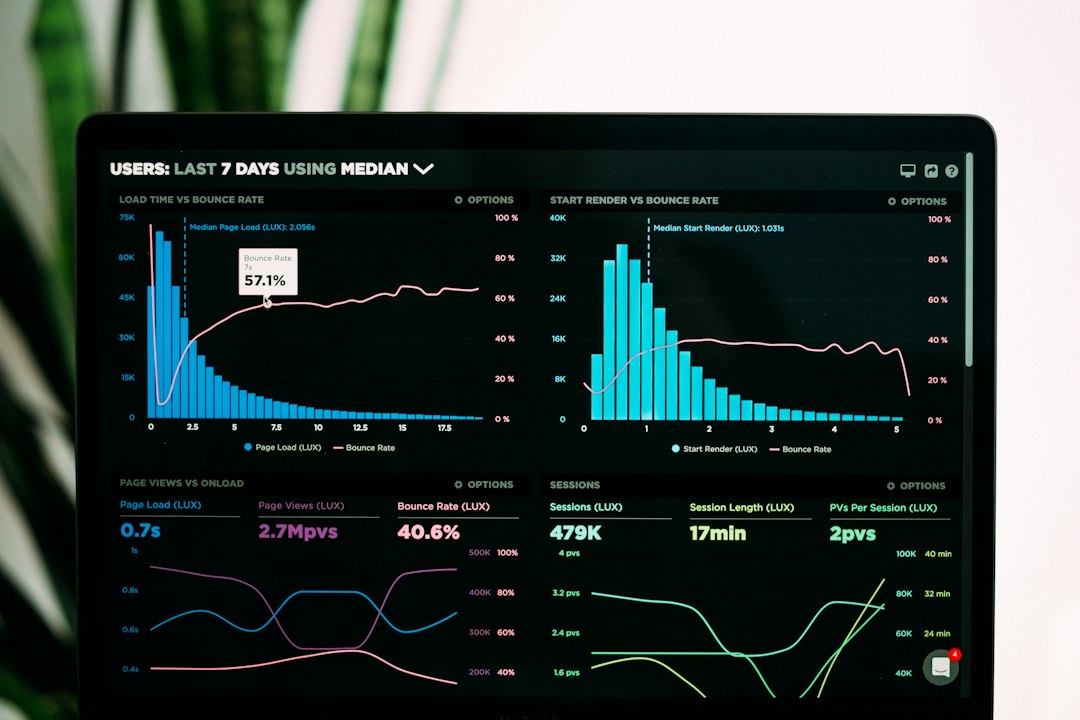Salesforce is a leading customer relationship management (CRM) platform that offers a wide range of tools and features to help businesses streamline their marketing efforts. One of the key capabilities of Salesforce is its ability to enable personalized marketing strategies. Personalization has become increasingly important in modern marketing as consumers expect tailored experiences and relevant content. In this article, we will explore how Salesforce helps marketers deliver personalized experiences, leverage customer data for personalization, create targeted marketing campaigns, enhance customer engagement with AI-powered tools, streamline sales and marketing alignment, measure the success of personalized marketing efforts, and provide best practices for implementing personalized marketing strategies.
Key Takeaways
Understanding the Importance of Personalization in Marketing
Personalization is crucial in modern marketing because it allows businesses to connect with their customers on a deeper level and deliver relevant experiences that resonate with their needs and preferences. According to a study by Epsilon, 80% of consumers are more likely to do business with a company that offers personalized experiences. Additionally, 90% of consumers find personalization appealing, and 80% are more likely to make a purchase when brands offer personalized experiences.
Personalization not only improves customer satisfaction and loyalty but also drives business results. A study by McKinsey found that personalization can deliver five to eight times the return on investment (ROI) on marketing spend and lift sales by 10% or more. Furthermore, personalized emails have been found to generate six times higher transaction rates compared to non-personalized emails.
How Salesforce Helps Marketers Deliver Personalized Experiences
Salesforce offers a range of tools and features that enable marketers to deliver personalized experiences to their customers. One such tool is Salesforce Marketing Cloud, which allows marketers to create targeted campaigns across multiple channels such as email, social media, mobile, and web. With Marketing Cloud, marketers can segment their audience based on various criteria such as demographics, behavior, and preferences, and deliver personalized content and offers to each segment.
Salesforce also provides AI-powered tools through its Einstein Platform, which can enhance customer engagement and personalization. For example, Einstein Personalization allows marketers to deliver individualized product recommendations to customers based on their browsing and purchase history. This helps businesses increase customer satisfaction and drive sales by offering relevant products and recommendations.
Leveraging Salesforce’s Customer Data Platform for Personalization
Salesforce’s Customer Data Platform (CDP) plays a crucial role in enabling personalization. The CDP allows businesses to collect, unify, and activate customer data from various sources such as CRM, marketing automation, and third-party systems. This data can then be used to create a single view of the customer and deliver personalized experiences across all touchpoints.
By leveraging Salesforce’s CDP, marketers can gain a deeper understanding of their customers’ preferences, behaviors, and needs. This enables them to create highly targeted and personalized marketing campaigns that resonate with their audience. The CDP also helps businesses deliver consistent experiences across channels by ensuring that customer data is synchronized and up-to-date.
Creating Targeted Marketing Campaigns with Salesforce Marketing Cloud
Salesforce Marketing Cloud is a powerful tool that enables marketers to create targeted marketing campaigns across multiple channels. With Marketing Cloud, marketers can segment their audience based on various criteria such as demographics, behavior, and preferences, and deliver personalized content and offers to each segment.
For example, a retail business can use Marketing Cloud to send personalized emails to customers based on their past purchases or browsing history. They can also use the platform to create personalized landing pages for different segments of their audience. By delivering relevant content and offers to each segment, businesses can increase engagement, drive conversions, and build customer loyalty.
Enhancing Customer Engagement with Salesforce’s AI-Powered Einstein Platform

Salesforce’s Einstein Platform is an AI-powered tool that can enhance customer engagement and personalization. Einstein uses machine learning algorithms to analyze customer data and provide insights and recommendations to marketers.
For example, Einstein Personalization allows marketers to deliver individualized product recommendations to customers based on their browsing and purchase history. This helps businesses increase customer satisfaction and drive sales by offering relevant products and recommendations. Einstein also enables marketers to create personalized email subject lines, content, and offers based on customer preferences and behavior.
Streamlining Sales and Marketing Alignment with Salesforce CRM
Salesforce CRM plays a crucial role in aligning sales and marketing efforts for personalized marketing. By using Salesforce CRM, businesses can ensure that sales and marketing teams have access to the same customer data, enabling them to deliver consistent and personalized experiences.
Salesforce CRM allows businesses to track customer interactions, preferences, and purchase history, providing valuable insights for both sales and marketing teams. This alignment helps businesses deliver personalized content and offers throughout the customer journey, from lead generation to post-purchase engagement.
Measuring the Success of Personalized Marketing Efforts with Salesforce Analytics
Salesforce Analytics provides businesses with the tools they need to measure the success of their personalized marketing efforts. With Salesforce Analytics, marketers can track key metrics such as engagement rates, conversion rates, and ROI for their personalized campaigns.
By analyzing these metrics, businesses can gain insights into the effectiveness of their personalized marketing strategies and make data-driven decisions to optimize their campaigns. For example, if a certain segment of customers is not responding well to a personalized campaign, marketers can use Salesforce Analytics to identify the reasons behind this and make adjustments to improve results.
Best Practices for Implementing Personalized Marketing Strategies with Salesforce
When implementing personalized marketing strategies with Salesforce, there are several best practices that businesses should follow:
1. Define clear goals: Before implementing personalized marketing strategies, businesses should define clear goals and objectives. This will help them align their efforts and measure the success of their campaigns.
2. Collect and unify customer data: To deliver personalized experiences, businesses need to collect and unify customer data from various sources. This includes CRM data, marketing automation data, and third-party data. By having a single view of the customer, businesses can create highly targeted and personalized campaigns.
3. Segment your audience: Segmenting your audience based on various criteria such as demographics, behavior, and preferences is crucial for delivering personalized experiences. By understanding the different needs and preferences of your audience segments, you can create relevant content and offers that resonate with each segment.
4. Test and optimize: Personalized marketing is an iterative process. Businesses should continuously test and optimize their campaigns to improve results. This includes testing different messages, offers, and channels to identify what works best for each segment.
Real-World Examples of Successful Personalized Marketing Campaigns with Salesforce
There are numerous examples of businesses that have successfully implemented personalized marketing strategies with Salesforce. One such example is Coca-Cola, which used Salesforce Marketing Cloud to create a personalized email campaign for its “Share a Coke” campaign. The campaign involved printing popular names on Coca-Cola bottles and encouraging customers to share their personalized bottles on social media. Coca-Cola used Marketing Cloud to send personalized emails to customers with their names on the bottles, driving engagement and social sharing.
Another example is Spotify, which used Salesforce’s AI-powered Einstein Platform to deliver personalized music recommendations to its users. By analyzing user listening habits and preferences, Spotify was able to create highly personalized playlists and recommendations that resonated with each user’s taste in music. This helped Spotify increase user engagement and retention.
Personalization has become a crucial aspect of modern marketing, as consumers expect tailored experiences and relevant content. Salesforce offers a range of tools and features that enable businesses to deliver personalized experiences across multiple channels. From Salesforce Marketing Cloud for targeted campaigns to Einstein Platform for AI-powered personalization, businesses can leverage Salesforce’s capabilities to enhance customer engagement and drive business results. By following best practices and learning from real-world examples, businesses can implement personalized marketing strategies with Salesforce and achieve success in today’s competitive landscape.
Check out this insightful article on how Salesforce empowers personalized marketing strategies. The article discusses the five key ways in which Salesforce enables businesses to create highly targeted and personalized marketing campaigns. From leveraging customer data to segmenting audiences, Salesforce provides marketers with the tools they need to deliver tailored messages and experiences to their customers. To learn more about how Salesforce can revolutionize your marketing efforts, click here: https://martech.com.my/.
FAQs
What is Salesforce?
Salesforce is a cloud-based customer relationship management (CRM) software that helps businesses manage their sales, marketing, and customer service activities.
What is personalized marketing?
Personalized marketing is a marketing strategy that involves tailoring marketing messages and offers to individual customers based on their preferences, behaviors, and interests.
How does Salesforce empower personalized marketing strategies?
Salesforce empowers personalized marketing strategies by providing businesses with tools to collect and analyze customer data, create targeted marketing campaigns, and deliver personalized experiences across multiple channels.
What are some of the ways Salesforce enables personalized marketing?
Some of the ways Salesforce enables personalized marketing include using artificial intelligence (AI) to analyze customer data, creating personalized email campaigns, delivering personalized website experiences, and using social media to engage with customers.
What are the benefits of using Salesforce for personalized marketing?
The benefits of using Salesforce for personalized marketing include increased customer engagement, improved customer loyalty, higher conversion rates, and better ROI on marketing campaigns.

